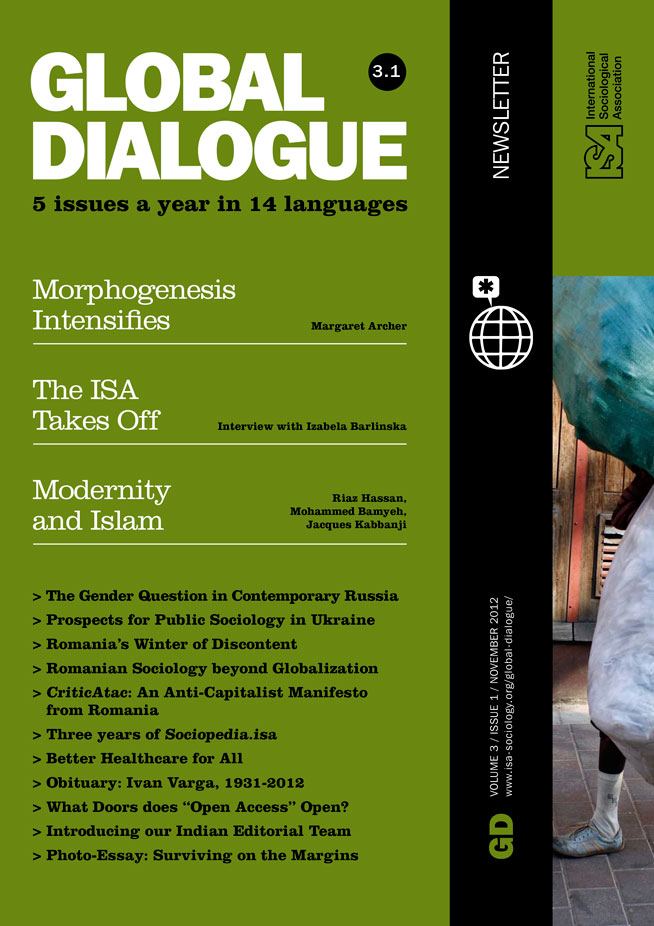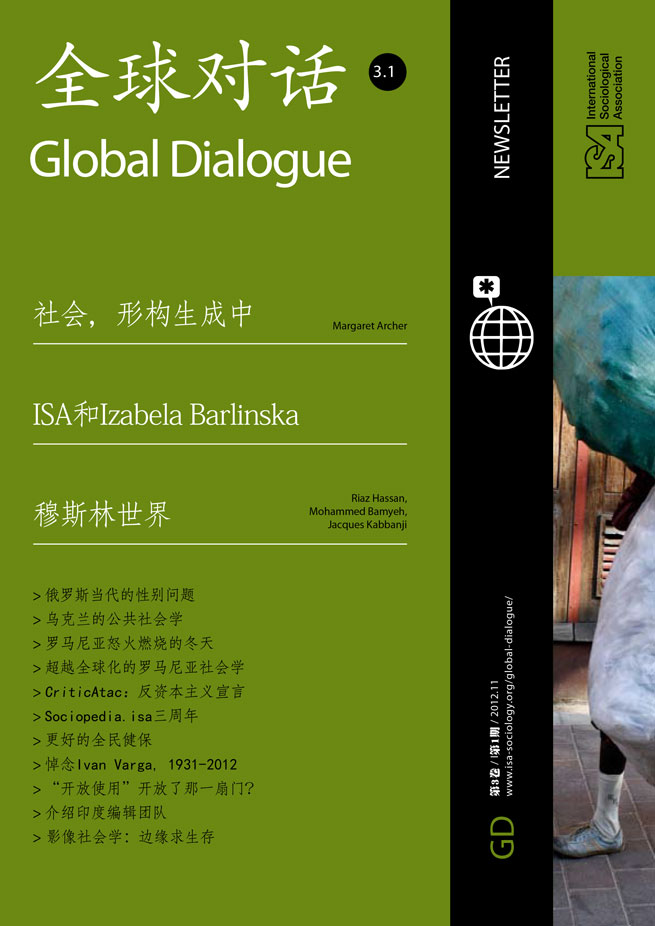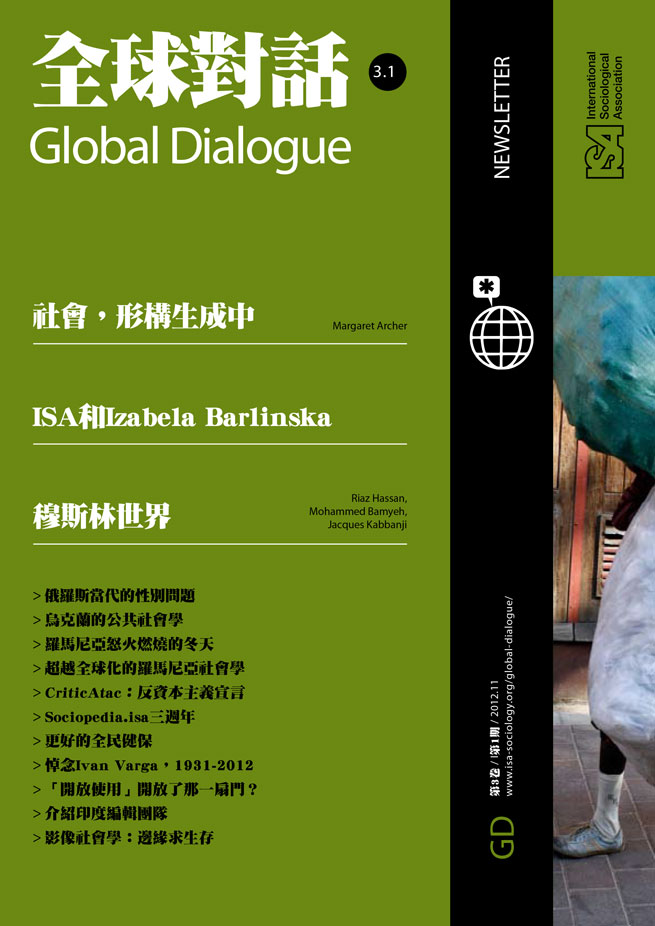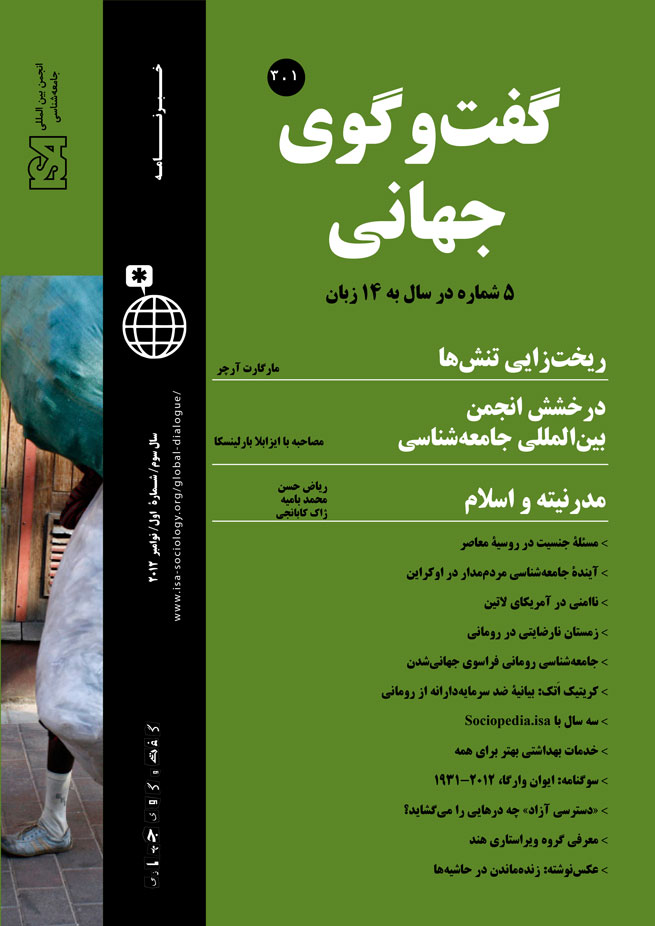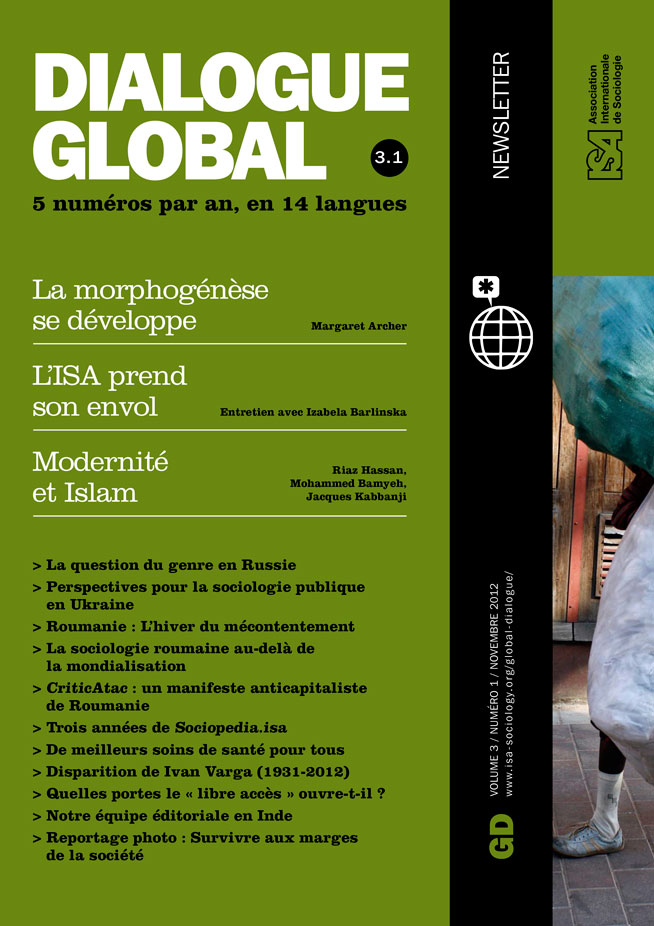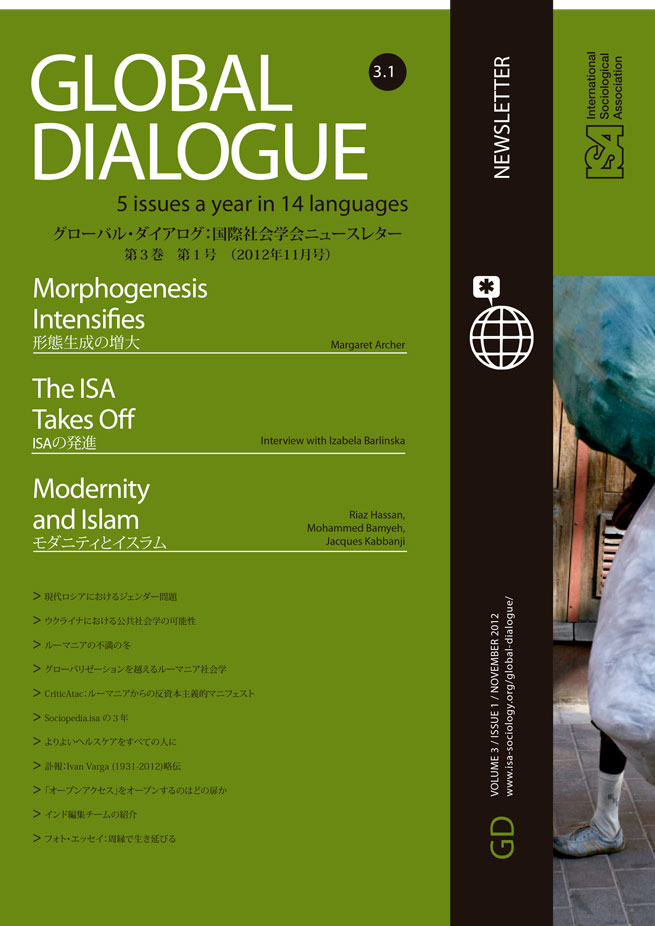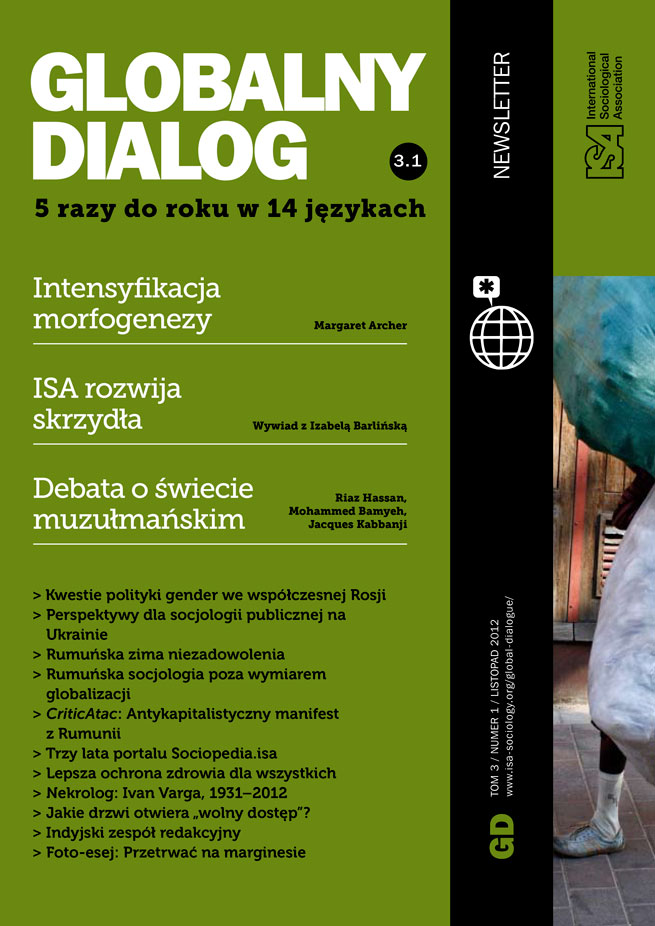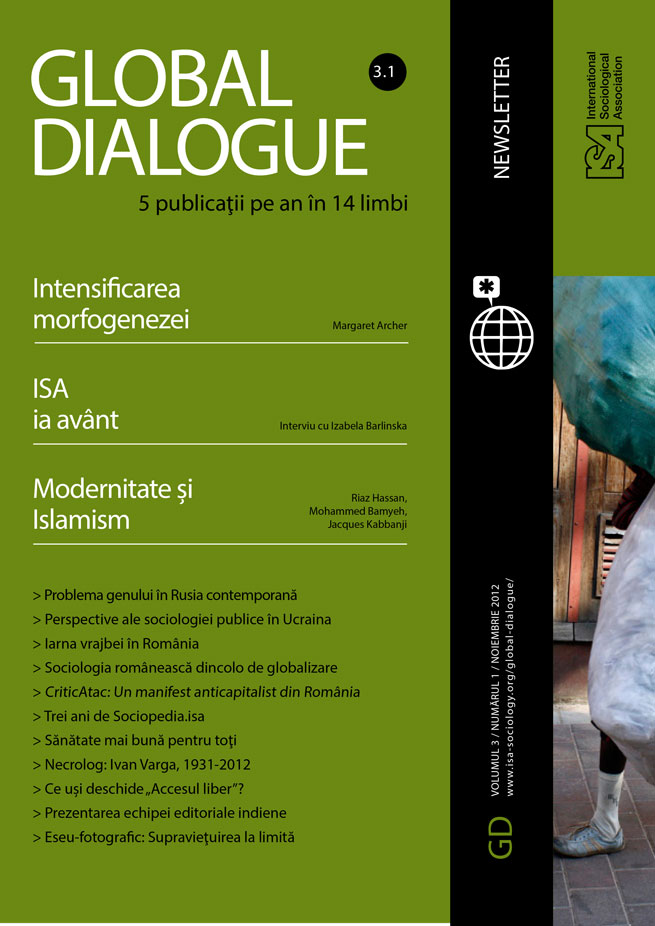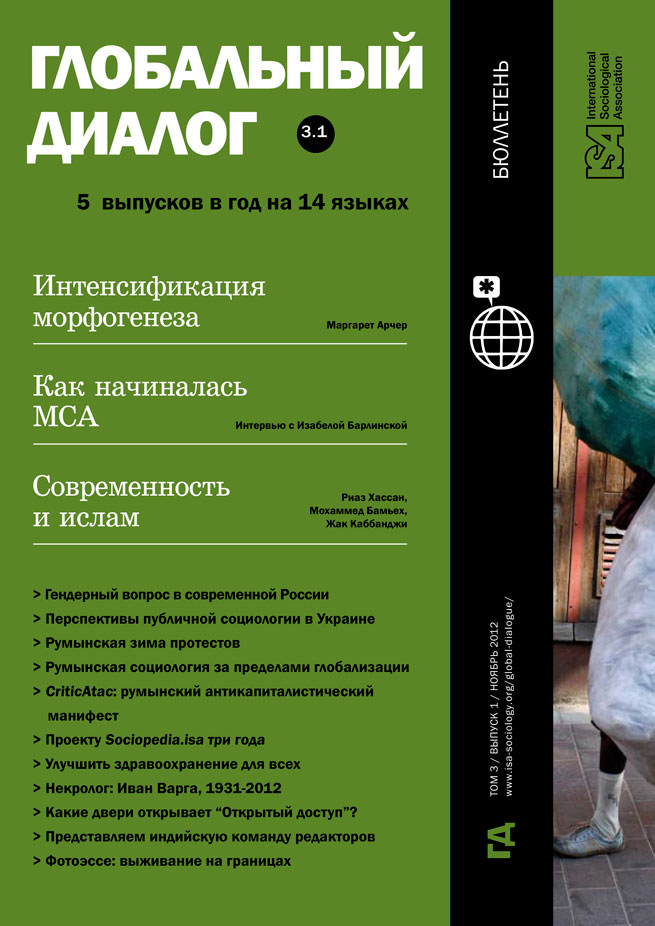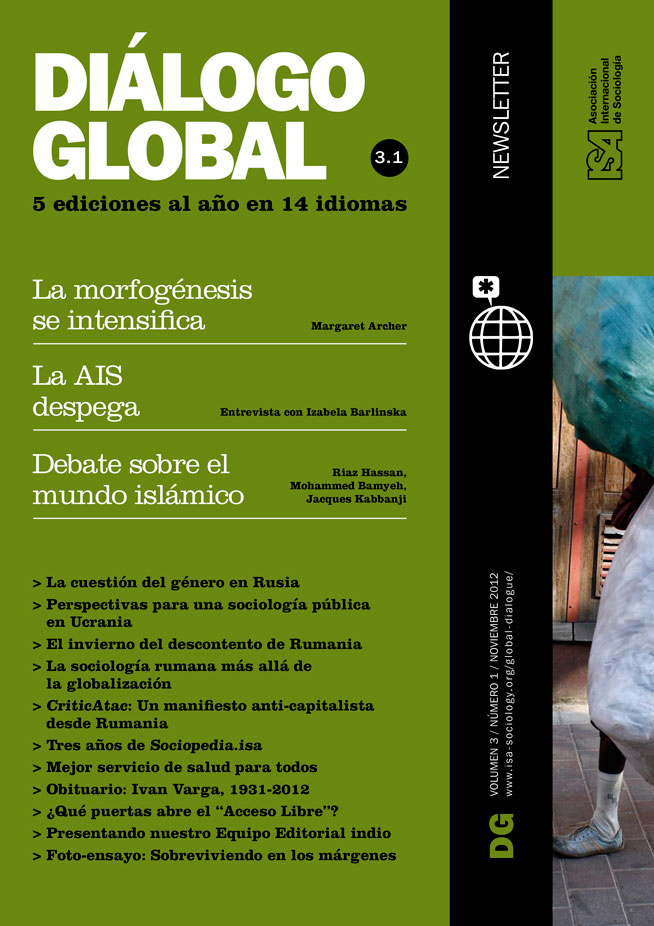Read more about Soviet Legacies
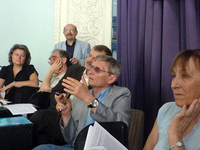
Prospects for Public Sociology in Ukraine
by Lidia Kuzemska
October 28, 2012
Over the past two decades, researchers and activists have discussed whether it is appropriate to use the term “gender” in the Russian context. They often found themselves in a blind alley, trying to grasp what the gender agenda could be, since Russian women are generally not discriminated against, abortion is legal, women have economic independence and social support. There is even some political representation of women. Of course, there are still many problems but by and large, for most people, these are personal problems, i.e. they are not simultaneously political issues.
However, over the last year, the gender agenda has been assuming a new and ominous shape and we are, therefore, interested in what this means, and why it is happening. Note, however, that so far it has not reached the public eye.
The Moral Threat of Gender Equality
So, firstly, the term “gender.” Unobtrusively, with many pundits unaware, “gender” has quietly entered political discourse. And not just in those areas where it seems to be most relevant, for example in discussing legislation around gender equality. Most significantly, gender entered where it was not expected and was not widely noticed, namely, in religious discourse. Moreover, it entered with a sharp negative connotation, as a symbol of foreignness and the West. It was seen as a threat and a challenge.
This was manifest during the Duma discussion of the Law on Gender Equality. This law, which will probably be adopted in due course, attracted little attention and had little influence, but in religious circles it was seen as a major threat. Equality is not rejected, but, so say religious officials, it is not appropriate for a statutory authority to rule on the question of gender. So they consider “gender” a threat even though the law, if passed, will have little influence and will only be applied on a voluntary basis.
What, then, is this threat that “gender” poses, conceptually and practically? In the second decade of the 21st century, why and to whom is gender equality so dangerous when it has long been the norm in many (but not all) sectors of Russian society? Ironically, gender equality has become a political issue, not because there is not enough (although that is also true) and one has to fight for it, but because the forces which regard it as a moral threat have turned it into a political issue.
Symbolic Politics of Restricting Abortion
Second, unnoticed by the general public, at the end of 2011, there was a discussion about amendments to the Law on Health Protection, aimed at significantly limiting access to abortion. This prompted some feminist organizations to mount a campaign on the Internet and even taking it to the streets. In the end most of the amendments were rejected although the reasons for this are not entirely clear. Certainly, a group of protestors with placards could not have had such political influence. Discussion of the amendments was hard – there was much irrationality, moralizing, incoherence and terminological ambiguity. Demographers, sociologists, and doctors explained once again that reducing the number of abortions is best accomplished through the promotion of modern contraception rather than prohibition. But this is hardly news.
The gender agenda – and the issue of abortion is at the center of the agenda, focusing as it does on the collision of women’s rights and the rights of the unborn child as well as the collision between private and public control and responsibility – is gaining ever more symbolic power, but also ever greater potential for real consequences. Such laws concerning abortion have economic and social dimensions, with different consequences for different classes. The lowest strata of society are far more affected by such laws than the higher strata who are more accustomed to using contraception and, in any case, can always pay for an abortion. Still, the abortion controversy is another potent item on the “gender agenda.” Thus, in September 2012 St. Petersburg parliamentarians discussed possible changes to the Constitution that would vest a human embryo with human rights.
Equating Homosexuality and Pedophilia
Third, there is the law banning publicity that promotes homosexuality and pedophilia among persons under age 18. According to this law supporting pedophilia is seen in the same light as supporting homosexuality. Gay pride is one example of publicizing homosexuality that should be outlawed. Signed in some regions, including in St. Petersburg in 2012, this law suffers from the same lack of logic and the same terminological ambiguities as the previous two. It does not seem to be legally well-founded and has prompted discussion and protest on the Internet.
Most important, it has symbolic meaning. Perhaps the law can never be applied, but it can still have serious practical consequences. It is well designed to stigmatize both pedophiles and homosexuals as equally corrupting of children. Practically, it creates opportunities to prosecute certain politically “non-reliable” homosexuals or LGBT groups. At the same time such a law complicates the practical struggle against the real and complex issues involving pedophilia and violence. It suggests that the supporters of the law are not well versed in its subject, nor in the relevant scientific research. There is no reason why it should be passed now or why in this particular version, making it reminiscent of the laws of the Stalin era, albeit in a milder form. It does not generate any broad public interest or mobilization.
From Irrational Law to State Coercion
The promotion of a “gender agenda” through these laws falls into a familiar pattern. Thus, we can recall earlier attempts to condemn the civil marriage by the State Duma Commission on Childhood, Maternity and Family. In this way sexuality, reproduction, equality all become gender threats. But why? And for whom? What’s it all about? Is it about reducing the number of abortions or condemning them? Is it to strengthen the family or is the goal to return the woman to the family, limiting her other options? Is it to develop a pragmatic social policy through which many women can give birth to more children? Is the idea to eliminate pedophilia? Is the idea to take into account the complexity of the world, the impossibility and inefficiency of simple solutions? Is there an attempt to involve experts and arrange public discussions? Or is it about forging a discursive symbolic weapon without concern for providing resources or for material consequences? Such a symbolic weapon requires only moral arguments about spirituality and Russian particularities, and legal prohibitions then follow “automatically.” A minimal legal logic with solid arguments is missing.
Where arguments are not sufficient, force fills the vacuum. Formulating “gender” as a threatening Other, something dark, fuzzy, vague, and without boundaries, justifies a reaction that is also menacing, dark and unclear. Force (just like law) can be applied selectively. We have a lot of such experience in our history.
In 2012 Pussy Riot, a feminist punk-rock collective that stages politically provocative impromptu performances in Moscow, entered the political scene and highlighted a cluster of oppositions – the secular versus the religious, tradition versus the postmodern and feminism, and even presenting itself in opposition to Putin. They raised questions about who, what and how to punish, and about limits to the use of force.
A parallel cluster of contradictions, with opposite political meaning, can already be found in spiritual and religious discourse. Indeed, they were present in the discussions of all three laws referred to above, but they went unnoticed by the public. The Pussy Riot action, however, was much more visible and was greeted with extreme reactions in the press and with public retribution against this punk-rock collective. Three members of the collective were convicted of hooliganism and sentenced to two years in prison. Force prevails where arguments are inadequate and, most importantly, in the absence of clear limits to the influence of religious institutions in a secular state – specifically, limits to their influence on social policies with regard to public health, reproduction, sexuality, and gender.
For a Genuine Gender Politics
In Russia numerous studies have shown that the effects of present-day social policies supporting mothers are very weak (including demographic policies that offer monetary incentives for a second child with the goal of augmenting the population) and, moreover, they do not serve the real needs of young women and their families. Women criticize the government for the inadequate organization of reproductive and child health care as well as schooling for their children. Thus, having long since fallen outside the scope of wage employment, or refusing to have children (or at least more than one), many women, alone or with their family, spend much of their time fighting against the bureaucracy to receive adequate support for their children. In the future, they, like their mothers, will have to struggle alone with the problem of caring for their elderly and sick parents. They do not receive and don’t expect adequate support from the state, although paradoxically they don’t give up hope for some dispensation. They are only too aware of their predicament, but the question is whether they see it in terms of gender inequality, and under what conditions they might problematize their continuing dependence on state, male partners and kinship networks.
So far, mass discontent of modern city dwellers has not been linked to the gendered character of social problems and social policy. However, it is clear that potential solutions to such complex and resource-intensive problems require a strong and sound social and family (i.e. gender) policy, and effective participation of citizens in decision-making. But young city women, who do not trust the state and do not want to rely on it, nevertheless still depend on its social policies as they try to achieve an acceptable mother-work balance.
So long as such politics do not constitute a new agenda, and do not portend anything new – that is, as long as politics do not take into account the interests and representation of different groups – it is possible to intervene only in selected areas (to shift support among different groups or different issues as in the case of family demography), to moralize (in the case of homosexuality or abortion), or to use force (in the case of Pussy Riot). An anti-gender politics is slowly but surely being formulated in which declining birth rates, high levels of abortion, family instability, homosexuality and minority rights are all blamed on “gender,” an insidious concept attributed to Western influences and their Russian supporters.
Anna Temkina, European University at St. Petersburg, Russia
This issue is not available yet in this language.
Request to be notified when the issue is available in your language.
If you prefer, you can access previous issues available in your language:

